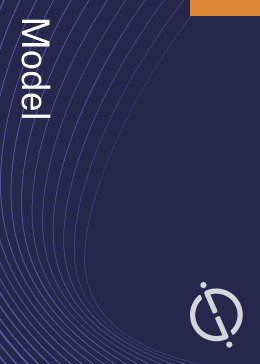Evalstotug is a monoclonal antibody commercialized by BioAtla, with a leading Phase II program in Non-Small Cell Lung Cancer. According to Globaldata, it is involved in 3 clinical trials, of which 2 are ongoing, and 1 is planned. GlobalData uses proprietary data and analytics to provide a complete picture of Evalstotug’s valuation in its risk-adjusted NPV model (rNPV). Buy the model here.

Discover B2B Marketing That Performs
Combine business intelligence and editorial excellence to reach engaged professionals across 36 leading media platforms.
The revenue for Evalstotug is expected to reach an annual total of $18 mn by 2040 globally based off GlobalData’s Expiry Model. The drug’s revenue forecasts along with estimated costs are used to measure the value of an investment opportunity in that drug, otherwise known as net present value (NPV). Applying the drug’s phase transition success rate to remaining R&D costs and likelihood of approval (LoA) to sales related costs provides a risk-adjusted NPV model (rNPV). The rNPV model is a more conservative valuation measure that accounts for the risk of a drug in clinical development failing to progress.
Evalstotug Overview
Evalstotug (BA-3071) is under development for solid tumors, non-small cell lung cancer, uveal melanoma, gastroesophageal (GE) junction carcinomas, renal cell carcinoma, gastric, cervical, transitional cell carcinoma (urothelial cancer). and melanoma. It acts as checkpoint inhibitor by targeting against cytotoxic T-lymphocyte antigen 4 (CTLA-4). It is based on conditionally active biologics (CAB) that optimizes antibodies to be activated and/or inactivated at defined physiological conditions. It was under development for the treatment of colon adenocarcinoma.
It was under development for small cell lung cancer, hepatocellular carcinoma and bladder cancer.
BioAtla Overview
BioAtla is a biotech company that develops novel monoclonal antibody and cell-based therapeutics using proprietary Conditionally Active Biologics (CAB) and Comprehensive Integrated Antibody Optimization (CIAO) platforms. The company’s pipeline products candidate includes BA3011 (mecbotamab vedotin) targets undifferentiated pleomorphic sarcoma, non-small cell lung cancer; BA3021 (ozuriftamab vedotin) for melanoma, squamous cell carcinoma of the head and neck; BA3182 treat adenocarcinomas; BA3361 for multiple tumor types; and BA3071 (Evalstotug) treat melanoma, non-small cell lung cancer (NSCLC) and carcinomas. BioAtla is headquartered in San Diego, California, the US.
The operating loss of the company was US$129.7 million in FY2023, compared to an operating loss of US$108.1 million in FY2022. The net loss of the company was US$123.5 million in FY2023, compared to a net loss of US$106.5 million in FY2022.
For a complete picture of Evalstotug’s valuation, buy the drug’s risk-adjusted NPV model (rNPV) here.
Data Insights
From

The gold standard of business intelligence.
Blending expert knowledge with cutting-edge technology, GlobalData’s unrivalled proprietary data will enable you to decode what’s happening in your market. You can make better informed decisions and gain a future-proof advantage over your competitors.



